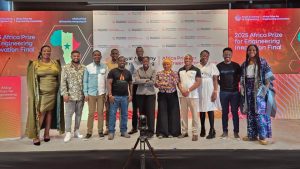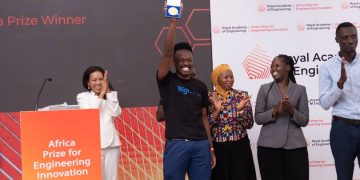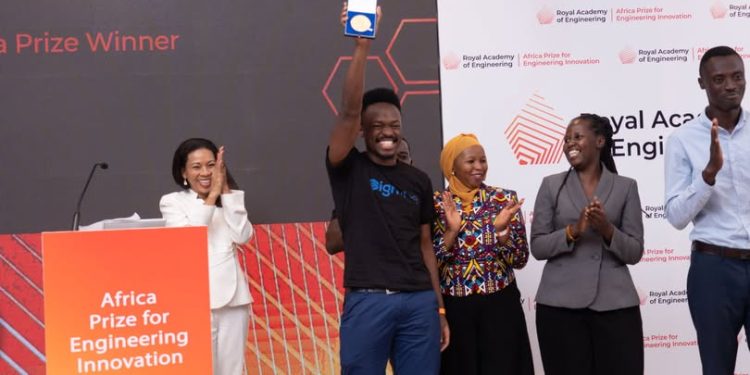Dakar, Senegal — Kenya’s Elly Savatia has been named the winner of the 2025 Africa Prize for Engineering Innovation, the continent’s largest engineering award, for his groundbreaking sign language translation app, Terp 360.
The AI-powered tool, developed by Savatia and his team at Signvrse, translates speech into sign language using lifelike 3D avatars. Designed in collaboration with the deaf and hard-of-hearing community, Terp 360 already features a database of over 2,300 locally recorded signs, making it a culturally relevant and transformative assistive technology.
Savatia walked away with the £50,000 grand prize, while Uganda’s Vivian Arinaitwe, creator of Neo Nest, was among three finalists each awarded £10,000. Arinaitwe’s Neo Nest is a portable, low-cost neonatal warming and monitoring device designed to prevent hypothermia during ambulance transfers of newborns from rural health facilities to referral hospitals.
Other finalists included Eng. Carol Ofafa (Kenya), developer of E-Safiri, a solar-powered charging and battery-swapping system for electric bikes and motorbikes, and Frank Owusu (Ghana), innovator of Aquamet, a smart water-quality monitoring system for fish farmers.
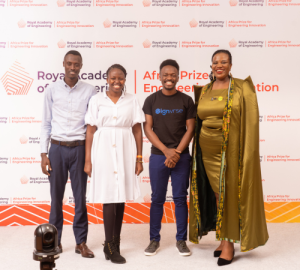
Speaking after being crowned the 11th winner of the Africa Prize at the live final in Dakar, Savatia said: “I’m totally grateful for this, and it is a testament to the innovative assistive technology work that is coming from Africa. I’m really looking forward to the excellence that will come out of Signvrse, the rest of the shortlistees and the African continent.”
The final event, which marked the first time the Africa Prize was hosted in Francophone Africa, was partly funded by the UK’s Department for Science, Innovation and Technology (DSIT). It concluded an eight-month programme of training, mentoring, and business development for 16 African innovators.
Chair of the judging panel, Rebecca Enonchong FREng, praised the quality of the innovations and the growing impact of African engineers. “This is exactly what the Africa Prize is all about — showcasing cutting-edge innovations by Africans for the world,” she said.
A special “One to Watch” award, worth £5,000, was presented to Rui Bauhofer from Mozambique for Eco-Plates — biodegradable disposable plates made from recycled maize husks and infused with seeds that germinate once discarded.
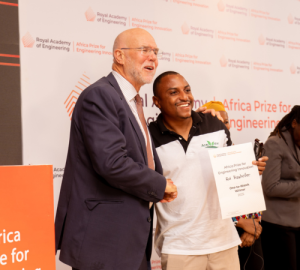
The finalists were evaluated on innovation, commercial viability, scalability, and societal impact, as well as their application of skills learned from the Africa Prize programme.
According to the Royal Academy of Engineering, which runs the Africa Prize, since its inception in 2014, the programme has supported over 160 innovators from more than 20 countries, providing them with mentorship, networks, and visibility to grow their businesses.
Applications for the next Africa Prize cohort will open in mid-2026, with the Academy encouraging innovators from across the continent to apply.
“The Africa Prize isn’t just about recognition — it’s about equipping Africa’s brightest engineers with the tools to build sustainable solutions for the continent,” said Enonchong.
